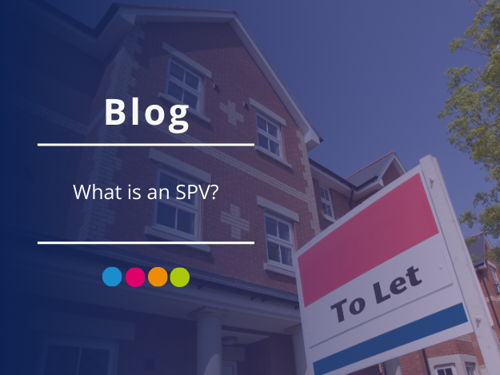
Are you a landlord wondering what an SPV is? This guide explains what they are and the benefits and drawbacks of using one to purchase and own your buy to let properties.
What is an SPV?
A Special Purpose Vehicle is a type of limited company, which is set up for a specific purpose. In the buy to let property world, landlords often use SPVs to buy and own their rental properties. So, instead of buying the property in their own name, some landlords set up an SPV to hold the property.
In this setup, the SPV borrows money for the property purchase in the company's name, not the landlord’s. The company then takes over managing the property, meaning it is responsible for the investment. To finance the property, you would typically apply for a limited company buy to let mortgage.
Since it is a separate legal entity with its own assets and liabilities, any problems are confined to this company. This may help protect the landlord’s personal assets and isolates any risks.
Pros and cons of using an SPV for buy to let property investments
Pros
- Personal assets may be protected: Using a Special Purpose Vehicle may help protect your personal assets. Since it is a separate company, any risks or problems, are limited to the company. This means that if something goes wrong, your personal assets may not be at risk. However, it’s important to manage the SPV properly. If the company isn't run correctly, this protection could be lost and your personal assets could be at risk.
- Easier ownership transfers: When a property is held within an SPV, it is owned by the company, not an individual. This can makes transferring ownership simpler and more flexible.
- Potential tax savings: Owning a buy to let property through an SPV may offer tax advantages. If you buy property personally, rental income is added to your salary, which may push you into the higher tax bracket of 40%. With an SPV, profits are subject to corporation tax, which is currently capped at 25%. So, if you're in a higher tax bracket or would reach it with your new investment, using an SPV could potentially lead to tax savings.
Important note: Tax rules can be complex, and it can depend on your specific situation. Always consult a tax advisor to understand all your options and potential outcomes before making a decision.
Cons
- Higher mortgage costs: Mortgage interest rates for properties held in an SPV can be higher than those available to individual landlords. Lenders may see an SPV as a slightly higher risk, and therefore, they may charge higher rates. Additionally, because it’s a more complex area, there may be fewer lenders, reducing your options. It's important to factor in these extra costs when deciding if an SPV is right for you.
- Legal and administrative requirements: Running an SPV means following company rules and regulations. This includes filing tax returns, submitting company accounts, and keeping records up to date. These tasks can take extra time and may require professional help, adding to the cost and effort involved.
- Ongoing business costs: Running an SPV can come with extra costs, such as fees for setting up and maintaining the company, accounting, and legal advice. If you have multiple properties in the SPV, these costs may increase. It's important to consider these ongoing expenses when calculating the potential profitability of using an SPV.
When should I consider using an SPV?
SPVs are most often used by experienced landlords who own several properties. Deciding whether or not to use an SPV is a personal choice, and it’s up to you to make that decision. If you're unsure, it's a good idea to seek professional advice. You should also carefully review all the expenses that may be involved, and any taxes you may owe to fully understand the financial implications before moving forward.
Summary
Using an SPV for buy to let properties can have benefits, such as possible savings on taxes, and making ownership transfers easier. But, there are also drawbacks to consider, like higher mortgage costs, extra paperwork, and ongoing business expenses.
Whether an SPV is right for you depends on your situation. If you're unsure, it's a good idea to get advice from a tax professional or property expert to help you decide.
This is for informational purposes only. Always seek professional advice before making any decisions to ensure it's the right choice for you. Any property used as security, which may include your home, may be repossessed if you do not keep up repayments on your mortgage.




